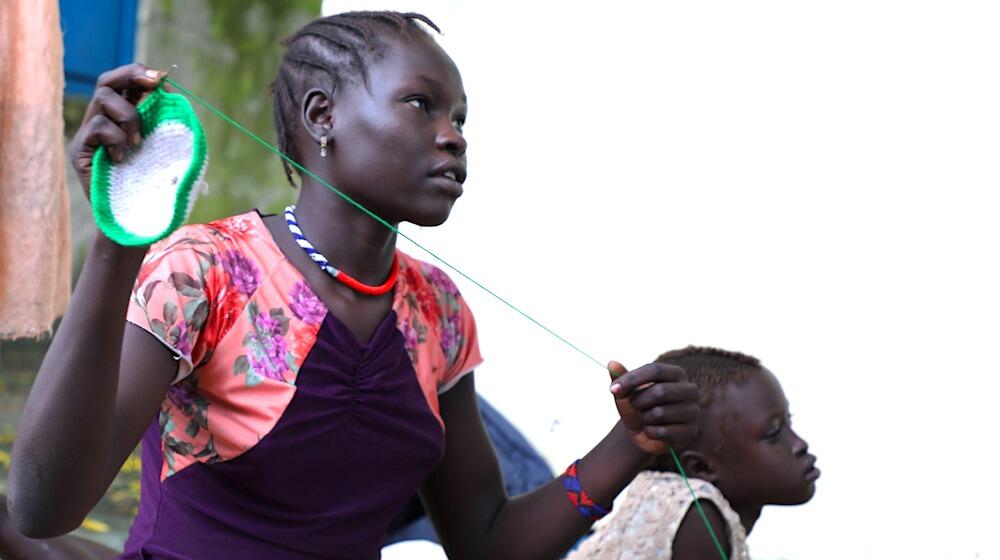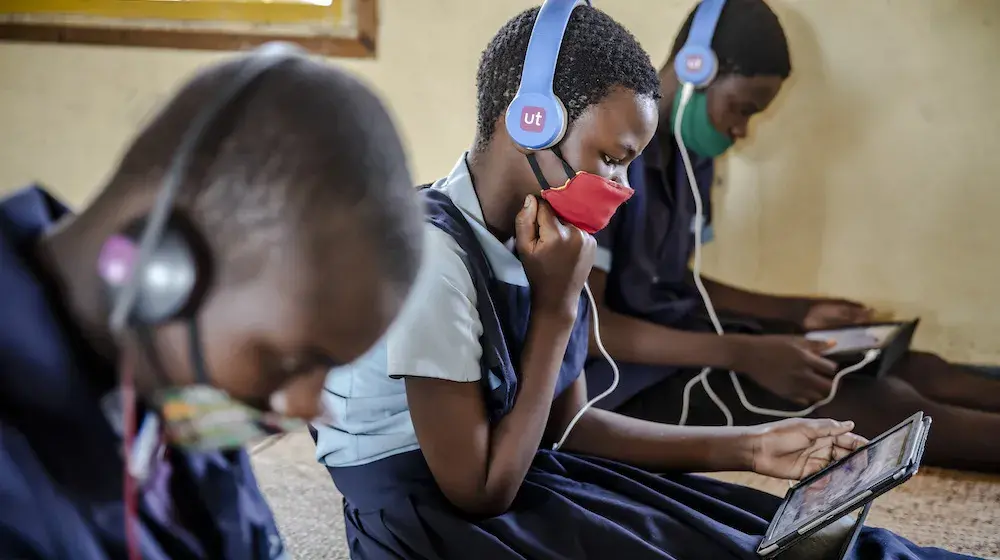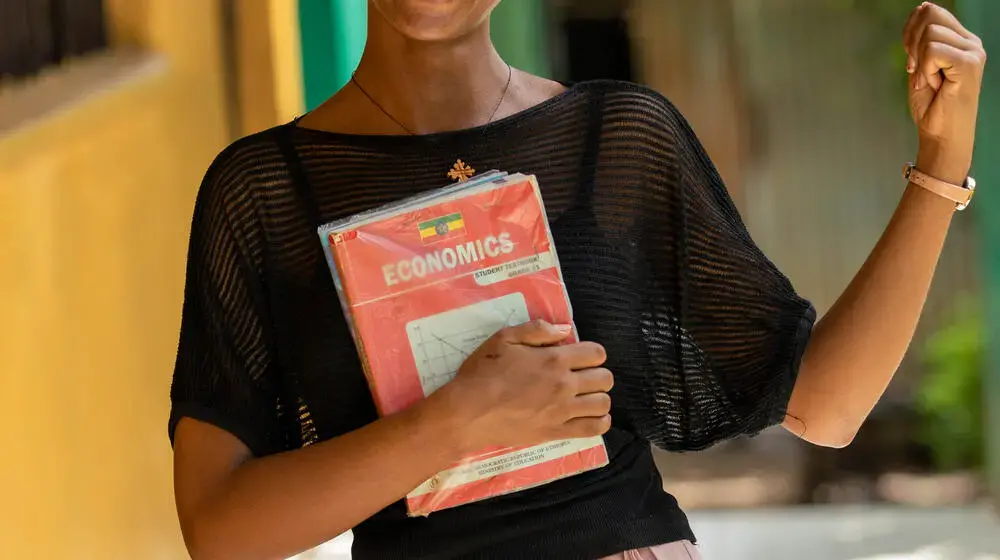JUBA, South Sudan – After suffering years of physical and emotional abuse at the hands of her husband, including a denial of resources, Aluel was considering taking her own life. Then members of her community told her about the One-Stop Centre at Juba Teaching Hospital and assured her she would get the assistance she needed.
“The staff understood the violent situation I had gone through and were helpful. I was given a dignity kit with basic materials for my survival. I got better and let go of the idea of suicide,” she said.
The staff understood the violent situation I had gone through and were helpful. I was given a dignity kit with basic materials for my survival. I got better.
On her recent visit to the country, Lydia Zigomo, UNFPA Regional Director for East and Southern Africa, visited the One-Stop Centre. “The diagnosis, testing and treatment are all available in one place, which saves the survivor from moving to many places looking for help,” she said.
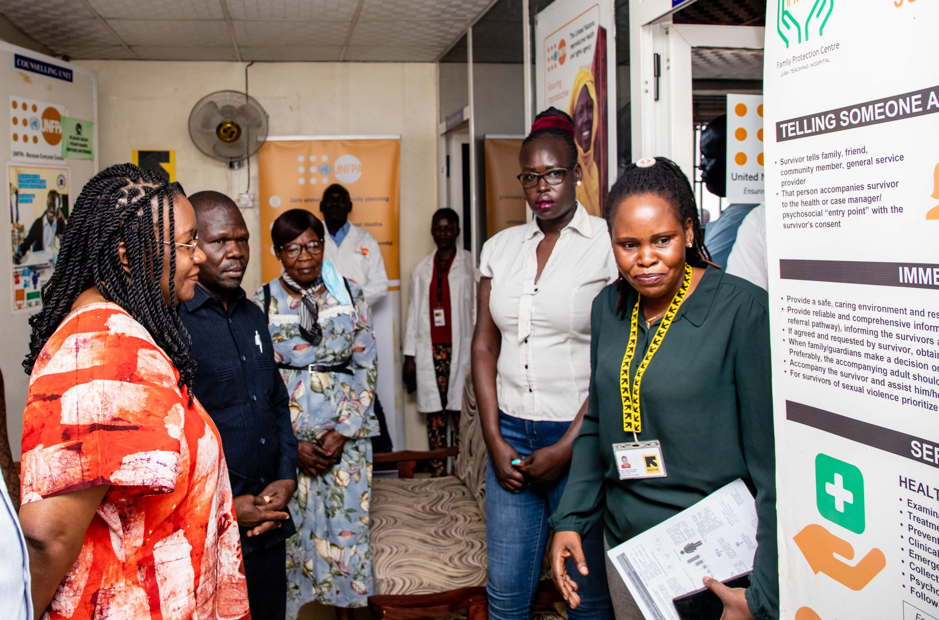
However, the extent of GBV in the world’s youngest nation is devastating, she said. Patriarchy is deeply entrenched in the family and at all levels. Harmful practices such early and forced marriage, intimate partner violence, and the abduction of women and girls drive GBV and gender inequality.
Of reported incidents of GBV at service delivery points, 33 per cent involved physical assault, 27 per cent emotional abuse, and 19 per cent sexual violence – and half of all perpetrators were intimate partners, according to the 2019 annual GBV Information Management System report. During intercommunal fights and cattle raids, women are abducted and raped, just as they were during the armed conflict.
Inadequacies in the legal system and heavy reliance on traditional authorities and chiefs for conflict resolution have contributed to complacency and impunity in dealing with GBV, which is largely resolved through compensation. Not surprisingly, the majority of cases of rape and sexual and gender-based violence are not reported by survivors, due to a fear of stigma, which is rooted in culture.
Raising awareness of GBV
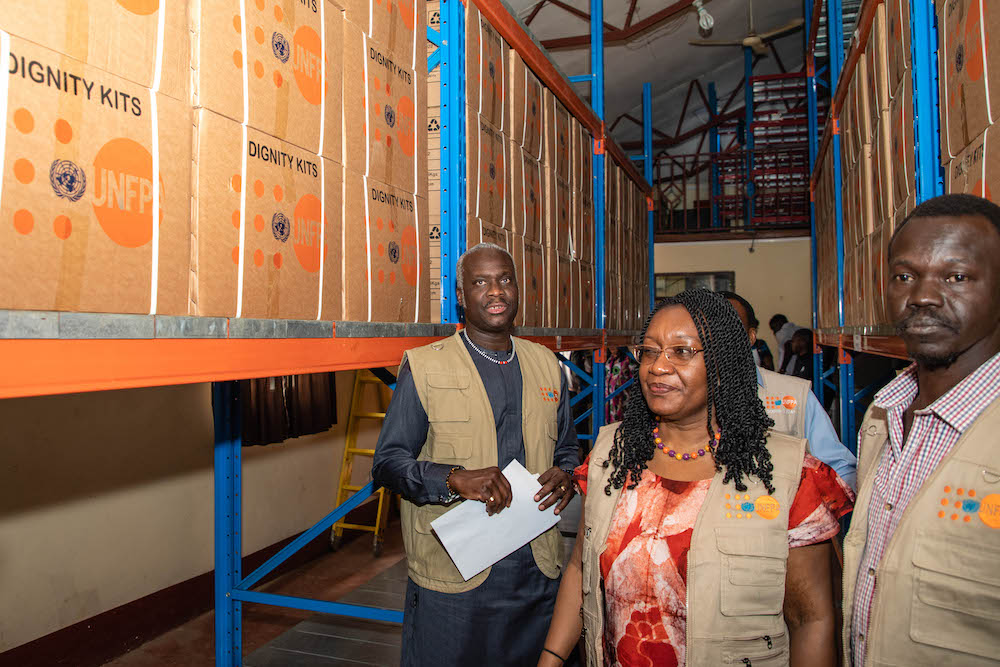
The One-Stop Centre offers a holistic and integrated package of health services, including psychosocial support, legal and judicial services, to survivors of sexual and gender-based violence. And UNFPA, the United Nations sexual and reproductive health agency, and other partners have provided support for raising awareness of prevention, reporting, and response to SGBV.
The approach is working. The number of rape cases reported at the one-stop centre has increased and more than 400 people have accessed legal services since it opened in 2017, while more than 45 cases have been successfully convicted.
In addition to the One-Stop Centre, the Gender-Based Violence Court that was established by the Government of South Sudan is providing a plethora of much-needed services to women and girls, in a country with an alarming rate of sexual and gender-based violence (GBV).
Emerging from conflict just a few short years ago, young nations like South Sudan have many good practices to learn from. “The judicial system is involved all the way in the juvenile and gender-based violence court. Those are really good practices,” Ms. Zigomo said.
She also visited UNFPA’s warehouse at Juba Teaching hospital, where she inspected commodities and discussed how the management of life-saving commodities ensured they reach those who need them, including in hard-to-reach rural locations.
The government is doing its task to provide [a] little, [but] there is still a need for more support so that we do not have our indicators sliding down, as they were some years back.
“We are happy that drugs are [being] made available,” said Antony Lupai, Director-General at Juba Teaching Hospital. “The government is doing its task to provide [a] little, [but] there is still a need for more support so that we do not have our indicators sliding down, as they were some years back.”

